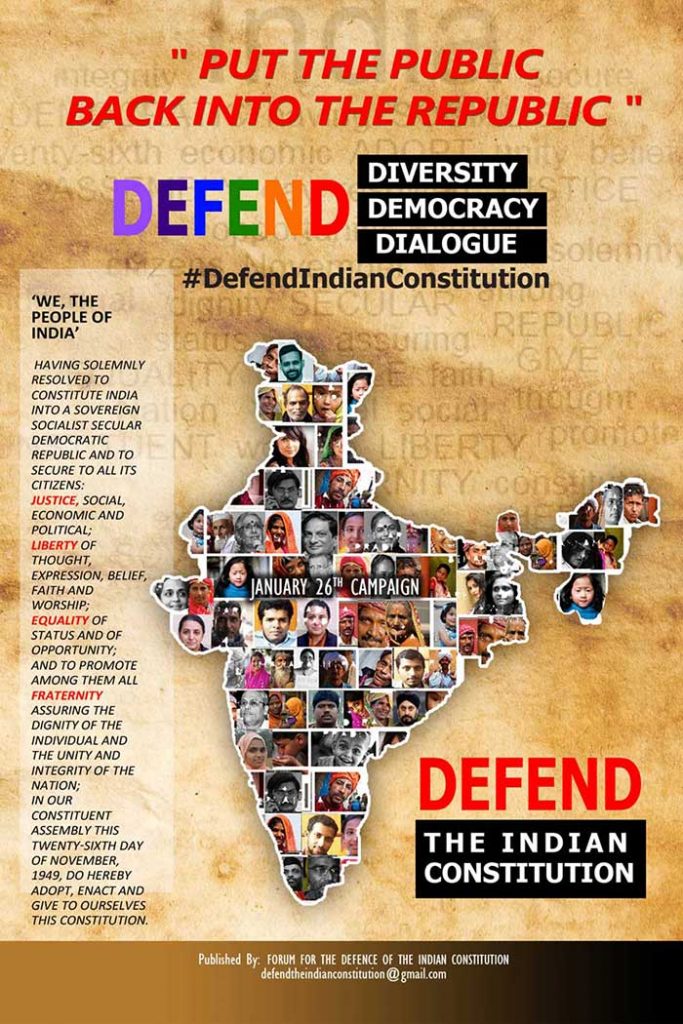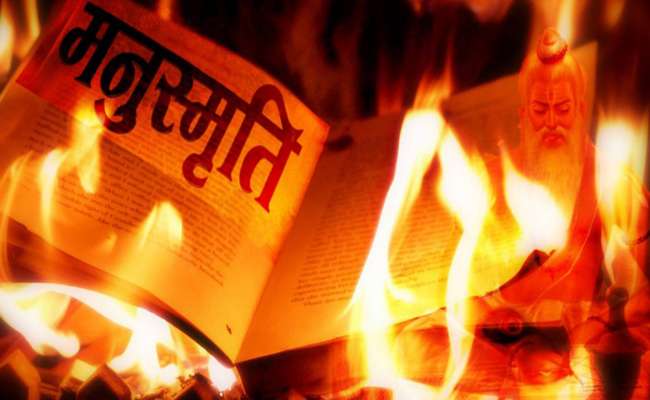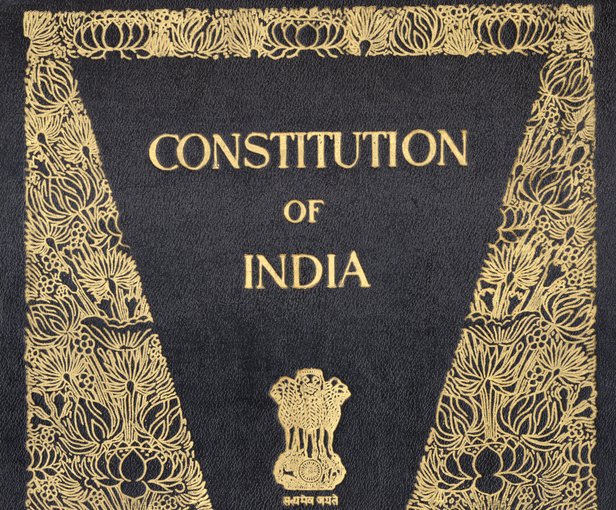
“Constitutional morality is not a natural sentiment. It has to be cultivated. We must realise that our people have yet to learn it. Democracy in India is only a top-dressing on an Indian soil which is essentially undemocratic.”: Dr. B. R. Ambedkar
India International Centre and Karwan- e–Mohhabat jointly organized a panel discussion on 17th August 2023 under the theme of “The morality of Indian Constitution: The Path Still to be Traversed”. The speakers included eminent Lawyer and politician Kapil Sibal, noted political scientist Neera Chandhoke, literary figures like Ashok Vajpayi and Syeda Hameed who expressed their views on decline of Constitutional morality, democratic values, composite culture, solidarity and Hindu-Muslim relations in the current socio-political scenario. The panel discussion was moderated by human rights activist and peace worker Harsh Mander.
To be very brief, let me say a few words about Karwan-e-Mohabbat (journey of love). It is a nation-wide campaign launched by members of civil society and human rights activists led by Harsh Mander and others in 2017, to restore communal harmony, peace and to defend the secular and democratic values enshrined in our Constitution, amidst rising hate and cultural intolerance in recent years.
The discussion was organized at a time when Bibek Debroy, a Charmian of the Economic Advisory Council of the Prime Minister (EAC- PM) wrote an article in The Mint (on 14th August 2023, “There’s case for, ‘we the people’ to embrace a new Constitution”), and argued for a new Constitution of India. For him, the Indian Constitution is derived from the Government of India Act, 1935 and is borrowed from colonial legacy. Therefore, there is a need to write a new Constitution. However, Debroy has later clarified that the article represents his personal views and not views of the Economic Advisory Council. His article has provoked sharp reactions and has been widely criticized by a section of Ambedkarites, members of the Congress party, Bahujan Samaj party and journalists on social media platforms and elsewhere. This is not the first time that a responsible member of the government body has raised the question of writing a new Constitution; the demand for change of the Constitution has been foregrounded earlier by members of the Hindu nationalist organizations.
In this backdrop, it is crucial to seriously reflect on the morality of the Indian Constitution and why we need to defend it and resist change in the current political scenario. The respective speakers have underlined that we need to defend our Constitution which came into existence after a long and sustained freedom struggle against the British colonial regime. It has to be noted that our Constitution was drafted after hard intellectual labour and serious deliberations of members of the Constituent Assembly (1946-1950). To put it differently, the Indian Constitution is not an ‘colonial document’- inherited from colonial legacy, as stated by Debroy, rather, it is deeply rooted in our traditions, culture and spiritual landscape of India, as hinted by speakers.
Noted American historian and scholar on Indian Constitution Granville Austin who authored books on Constitution argued that it is democratic in nature and has potential to bring out “social revolution” in India without bloodshed. Others have argued that the Indian constitution is a ‘living document’ and it can be amended according to the needs of contemporary society through democratic means, to achieve the agenda of justice, equality, liberty and fraternity enshrined in our preamble of Indian constitution. Scholars like Rohit De call the Indian Constitution “People’s Constitution”.
While addressing the gathering at the IIC, Professor Neera Chandhoke said that the Constitution was drafted by the Constituent Assembly amidst the horrors of partition which led to the death of around one million people. Through citing the couplets of famous Urdu poets, Chandhoke demonstrated that poets of Urdu had in the past, through their progressive poetries, promoted the values such as solidarity, generosity, love and tolerance between Hindus and Muslims which are also central to our Constitution.
While expressing the concerns regarding the fate of Urdu in our country, Chandhoke said that Urdu is not the language of Muslims alone; it has composite elements and is shared by both Hindus and Muslims historically. Noted Hindi novelist Munshi Premchand wrote both in Hindi and Urdu. It is a fact that Hindus and Muslims both love Urdu poetries and several revolutionary slogans were written in Urdu. For instance, freedom fighters like Hashrat Mohani for the first time coined slogans like Inquilab Zindabad and it was Mohani who also first demanded complete freedom from British colonial rule in 1921, Chandhoke expressed.
While highlighting the importance of civil liberty and freedom, she underlined that no government can snatch citizens’ rights, as enshrined in our constitution. Citing the statements of Babasaheb Ambedkar, she said that it was Ambedkar who rightly reminded us that Bhakti in religion is the road to salvation but in politics it will lead towards dictatorship. It needs to be underlined that India is the only country which drafted its own Constitution after Ireland, added Chandhoke.
While referring to political thinkers like Thomas Hobbes, Prof. Chandhoke said that according to him the Constitution is a social contract that is needed to establish order in society and protect everybody’s individual natural rights.
Mr. Kapil Sibal was the next speaker of the evening who said that the Constitution is basically borrowed from the Government of India Act, 1935 and the moral values such as justice, equality and fraternity, embedded in the Preamble of the Constitution. Keeping in mind the current decline of Constitutional morality, Sibal said that we are not living in ‘Amritkaal’ instead we are living in ‘Dark times’. While referring to laws recently introduced by the ruling dispensation in Parliament for revisions to the IPC, CrPC, and the Evidence Act, he reminded that the government is claiming that they have brought in the amendments to get rid of the colonial legacy. However, the reality is that these new laws are more draconian than the British colonial laws. For instance, one such amendment made by the government allows the police to detain a person for 60 to 90 days, whereas previously, the limit was only 15 days. Finally, he said that democracy is in danger and the constitution is compromised on a daily basis. For Sibal, to overcome these critical threats to the Constitution, the only way is to bring out political change in our country.
While reflecting on the current situation, Harsh Mander said that we the people of India need to take a pledge to defend the Constitution and not rely on the reigning political class. The Indian Constitution is not merely a political or a legal document, but it is also “poetry”, reminded Mander. It is unfortunate that violence and hate crimes are normalized but there is no outrage from people. Why are we silent and not coming out in the public domain when someone is killed in a public space like a train? In these extremely difficult times, we the people of India need to stand together, he emphasized.
While making his remarks, he has said that it is the responsibility of citizens to preserve and protect the civic values. Mander lamented that the dreams of our father and mother of nation are now being systematically destroyed. While referring to the importance of fraternity as envisioned by Ambedkar, he strongly believes that fraternity is the most important value we must protect. Fraternity should be understood as an idea prescribing that we have deep empathy towards fellow human beings and share the pain and agony of each other. For instance, when any one is being lynched publically, we should realize their pain and suffering. Idea of fraternity is more important than equality, liberty and now it is under attack, Mander expressed.
While sharing his thoughts on violation of constitutional morality, well known Hindi poet and cultural critic Ashok Vajpayi said that we can’t blame only the ruling political dispensation but large numbers of people especially the middle class who are reluctant to protect the constitutional values. It is the constitution of India which made us subject to citizens and gave individual and social rights. And therefore, it is the duty of citizens to protect the Constitution, said Bajpayi. He alleged that reports of drafting of the Constitution are under process and our middle class are silent and giving tacit support to the existing regime as if we are living in AmritKal. Both Gandhi and Babasaheb Ambedkar’s ideas of individual and spiritual liberations are deeply rooted in the Indian traditions. However, the later idea of social liberation was foregrounded during the freedom movement led by Gandhiji, underlined by Vajpayi. In Urdu poetry, there is no bhakti and this language is not the monopoly of Muslim clergy, and we have to learn good things from all religions of India and respect values which are embedded in our preamble of constitution, he added. In Today’s politics, we are witnessing only the rule of state and it is disconnected from good policies (Neeti), said Vajpayi. The idea of dissent and change were the integral part of Indian tradition and it was Gandhi who had adopted the progressive legacy of our traditions and he also jettisoned those traditions which were not acceptable in modern times.
Our Constitution can only be defended by the citizens and values like equality, freedom and justice are deeply connected to each other, he said. The Hindu Religion has become subservient to politics and as a result it has lost its spirituality and beauty of diversity. As it is generally assumed that after getting education, one can become liberal towards others, but this myth has been broken now when educated people are also involved in lynching, Vajpayi expressed. Although we have a long tradition of non-violence but now we all have become part of an extremely violent society. Only those religions are superior which respect others, said Vajpayi.
Final speaker, Sayeda Hameed shared her personal grief over the present state of the country and said that being a Muslim is very challenging these days, and that as a result she felt really conscious about her own identity. She cited the historic statement of Maulana Azad about the communal harmony, larger goal of humanity and Hindu-Muslim unity. While sharing the example of Muslims of Nuh who in the past focussed on gotra and caste affiliations inherited from their Hindu ancestors, rather than their Islamic identity. However, recent communal violence in Nuh has reinforced Islamic identity over other social identities. While citing experience of the partition of India in 1947 and the migration of Muslim community to the newly formed Pakistan, she said that our ancestors deliberately chose to stay in India and decided not to migrate to Pakistan because they were deeply inspired by the ideas of Gandhiji, Nehru, Azad, and Abdul Ghafar khan.
To summarize the major points, respective speakers have underlined that Constitutional morality is under serious threat now. We are witnessing worsening communal relations in recent years. Today, democratic and Constitutional values are openly violated and state and public institutions are failing to protect the rights of ordinary citizens. In my view, Debroy’s proposal to write a new Constitution needs to be resisted by those who are committed to protect progressive legacy of freedom struggle and ideas of Mahatma Gandhi, Babasaheb Ambedkar and Maulana Azad and of course willing to protect the morality of the Indian Constitution.
However, during the course of Constituent Assembly deliberations (1946-50) Ambedkar expressed with anguish that tensions still exist between the ‘Constitutional morality’ and ‘Public morality’. Take for instance, public morality or, as a matter of fact the societal morality based on caste and feudal values that widely exists in Indian society. That is why Babasaheb had proclaimed that without an “Annihilation of Caste”, it is not possible to bring out a “Social Revolution” in India. In short, there is a challenge to uphold constitutional morality in deeply casteist, gendered, and of course now communally divided society like India. However, if Constitutional morality is truly implemented in Indian society, it has radical potential to bring ‘social revolution’ in India, as underlined by Granville Austin.
To bring about a change in the troubled present situation in the country and to realise the goal of an egalitarian society, as makers of our Constitution envisioned during the formative years of nation-building; along with a political struggle, it is the responsibility of We the people of India, irrespective of our differences of caste, gender, religion and region, must come forward and stand in solidarity to defend the Constitutional values.
Unlike Bibek Debroy, Babasaheb Ambedkar long ago said that we have drafted a good constitution but it is not enough have a good Constitution, rather it is more important who is going to implement it. It is worthwhile to quote what Ambedkar said:
“However good a Constitution may be, if those who are implementing it are not good, it will prove to be bad. However, bad a Constitution may be, if those implementing it are good, it will prove to be good.” ( B.R. Ambedkar)
The writer has done Ph.D from Department of Political Science, University of Delhi and Currently associated with Centre for Equity Studies, Delhi.














































